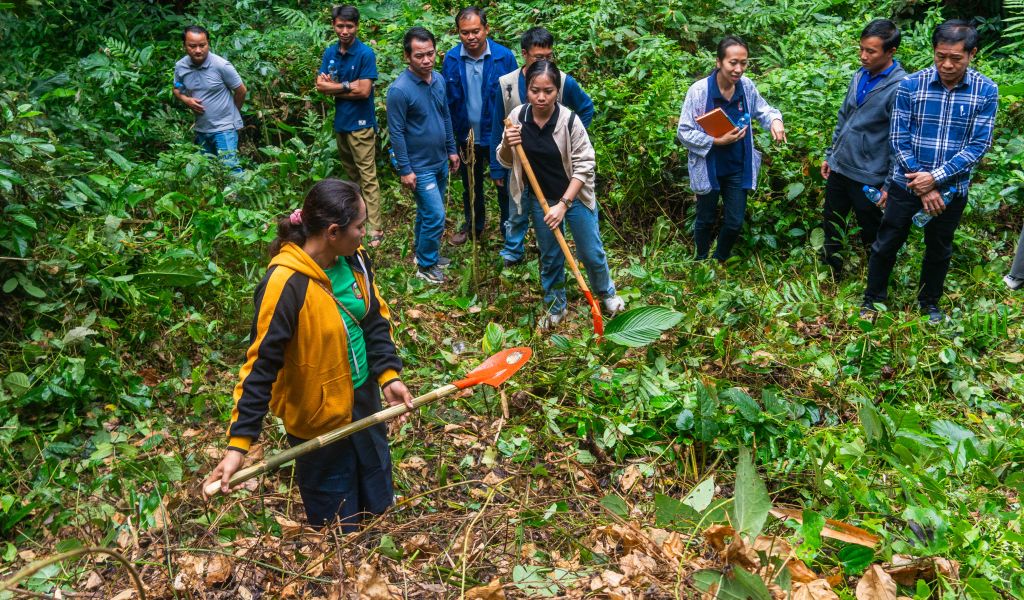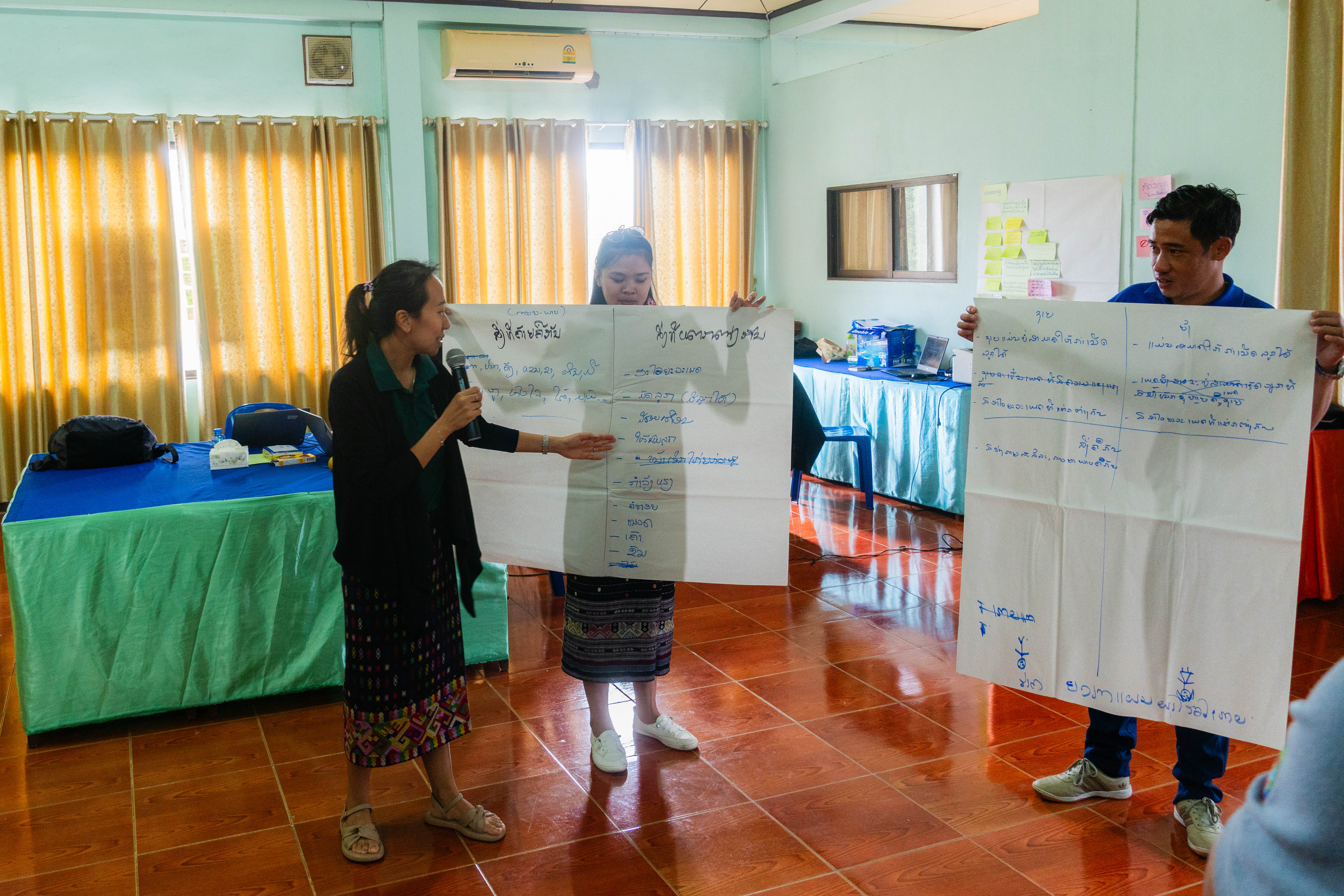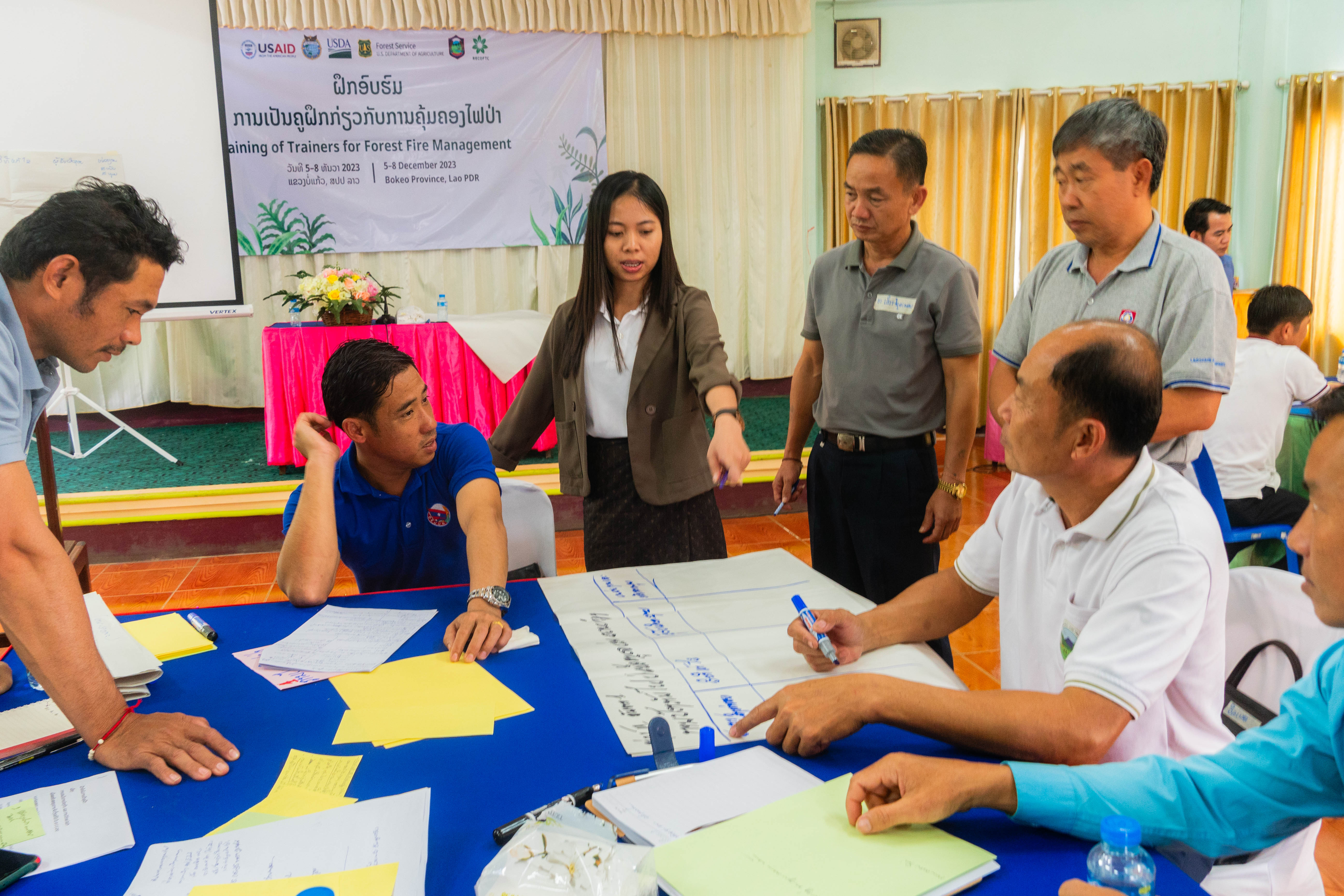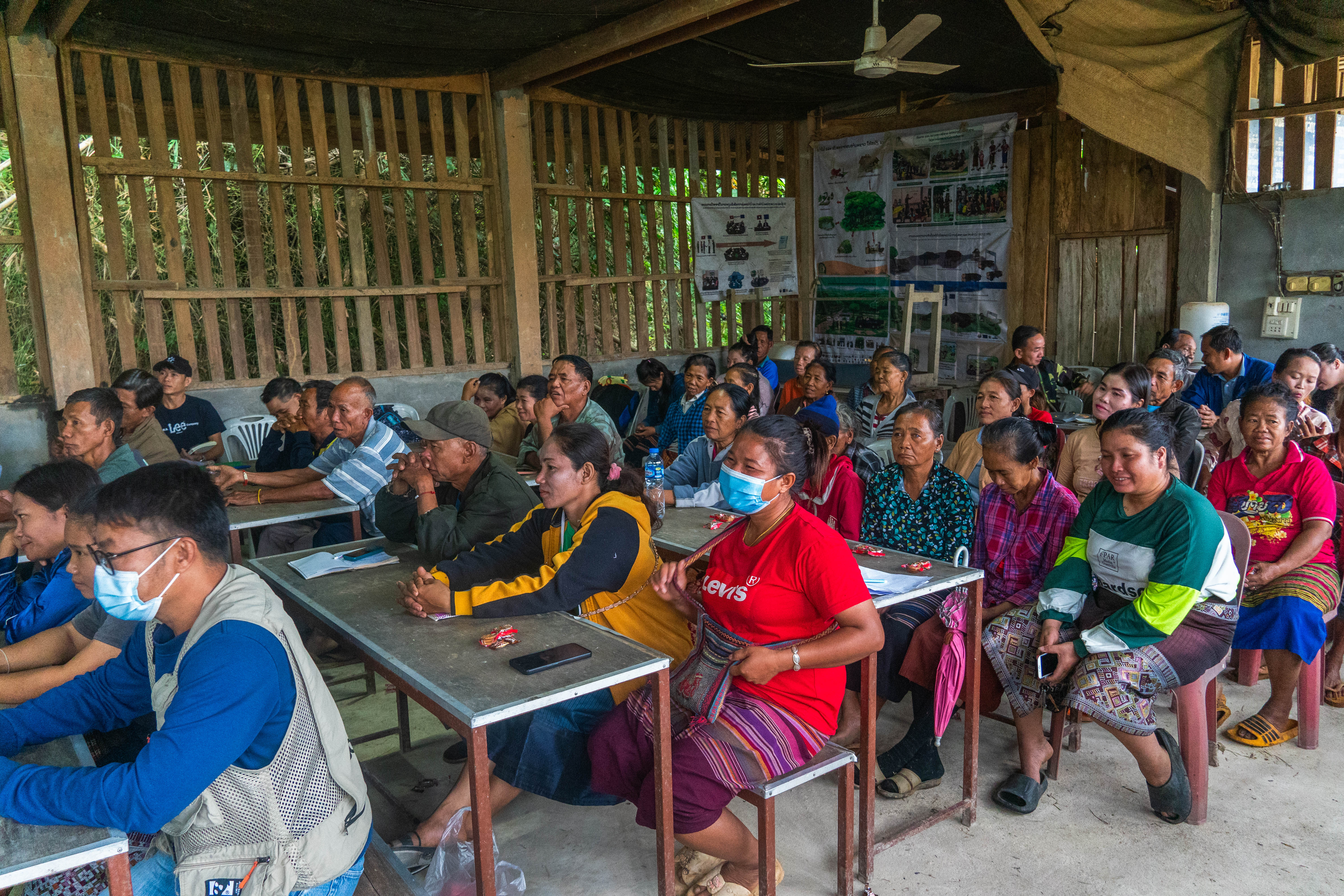Nurturing knowledge: Empowering communities on forest fire management in Lao PDR

Bokeo, the smallest province in Lao PDR, is rich in cultural diversity, with no fewer than 34 ethnic groups enriching the region’s vibrant cultural fabric. Also known for its verdant landscapes and diverse flora and fauna, Bokeo is a key site for RECOFTC’s Community-based Fire Management (CBFiM) project.
CBFiM in Lao PDR
Our CBFiM project, supported by the USDA Forest Service and partners, collaborates with local governments and communities in four countries: Cambodia, Lao PDR, Thailand and Viet Nam. The project focuses on people-centered land management and fire practices, aiming to mitigate the impact of wildfires in forest landscapes.
In the provinces of Bokeo and Xayaboury in Lao PDR, the project works closely with local governments, empowering communities to establish CBFiM plans at both provincial and community levels. This collaborative approach ensures that the strategies developed are tailored to the unique needs and circumstances of each community, thereby enhancing the effectiveness of fire management efforts.
The training of trainers workshop
In early December 2023, a four-day training of trainers workshop was held in Houayxay, the capital of Bokeo province. The workshop, designed to equip participants with essential skills in forest fire management and facilitation, was attended by 26 representatives from key government entities. They included personnel from the district forestry office, district and provincial agriculture and forestry offices, the youth and women's union, and the military from two provinces.
The workshop was led by resource persons from the National University of Laos and RECOFTC. They conducted sessions on various aspects of forest fires, including their benefits and impacts, as well as techniques for fire prevention and suppression. The workshop was not limited to theoretical discussions; it also employed a range of experiential and participatory learning methods. These included effective facilitation techniques, group discussions, role-playing, scenario-building, and a field practicum.
Bokeo, the smallest province in Lao PDR, is rich in cultural diversity, with no fewer than 34 ethnic groups enriching the region’s vibrant cultural fabric.
Gendered perspectives and meaningful participation
A group learning exercise was conducted to address gendered roles in forest fire management. Through role-play, participants were able to explore the distinct impacts on women and the necessity to consider gender-specific factors. The exercise also highlighted the importance of encouraging women’s active participation in effective forest fire management.
Thongchanh Chanthalavongxay, a representative from the Lao Women's Union in Bokeo Province, acknowledged the project’s focus on gender issues. However, she pointed out that “while women are often involved, they are rarely given priority”. She expressed her intention to advocate for gender equality in the context of village forest fire management.

Knowledge sharing and collaborative learning
The training provided a valuable platform for knowledge exchange and collaborative learning. Officials from various ministries attended the training, where they discussed the root causes of forest fires and shared their respective strategies for responding to these incidents.
In addition, they deliberated on preventive measures and strategies to raise awareness in their home provinces. This “learn-by-sharing” approach proved to be effective, enabling participants to understand the situation better and share valuable insights on preparing for and responding to the fire season.

Community interaction and field practicum
On the final day of the training, participants visited the community center in Namyonemai village to engage with the residents. The village chief presided over the interaction, during which participants and community members worked together to identify areas at risk of forest fires.

The participants shared their learnings from the training workshop and assisted community members in determining locations for implementing forest fire protection measures. In collaboration with community members and district forestry officials, they conducted a field practicum on creating a fire break. This involved clearing the underbrush and managing fuel to prevent the spread of forest fires.
Post-training vision
Following the training, selected facilitators are undergoing refresher training and coaching workshops. This additional training will equip them to effectively raise awareness in 25 targeted villages within their home provinces. As trainers, they will visit project beneficiaries and share their knowledge to help implement community-based fire management plans.
Somvang Vilayphone, the leader of a local youth volunteer group in Bokeo Province, found the sessions on the fundamentals of forest fires, as well as prevention and suppression methods, to be enlightening. He noted, “Many in my community still underestimate the detrimental effects of forest fires.” Committed to raising awareness about fire management in his village, Vilayphone plans to share the knowledge gained from the workshop with other youth volunteers.
Ronnakorn Triraganon, RECOFTC’s Senior Strategic Advisor, sees the training as a promising start for Lao PDR. He noted that participants gained insights into forest fire management techniques, fostered mutual understanding, and expanded their networks. “This experience lays the groundwork for them to promote the community-based fire management concept beyond the project’s boundaries and across the nation,” he noted.
Triraganon added that the collaboration aims to enhance Lao PDR’s capacity to respond to forest fires, thereby mitigating their impact on communities and ecosystems. The approach will also be adapted for use in other countries that are focus areas for the CBFiM project.
###
Souphaline Soulyavong is training officer in RECOFTC Lao PDR; Chinda Milayvong is national communication officer for RECOFTC Lao PDR; Utsav Maden is communication and engagement officer.
This story/publication was produced through the Community-based Fire Management (CBFiM) in Asia project, made possible through a five-year cooperative agreement between the USDA Forest Service International Programs and RECOFTC. The project receives financial support from the United States Indo-Pacific Command (USINDOPACOM) of the Department of Defense, along with funding from USAID and the USDA Forest Service International Programs.
For more information, please visit www.recoftc.org/projects/cbfim
RECOFTC’s work is made possible with the support of the Swiss Agency for Development and Cooperation and the Swedish International Development Cooperation Agency.

